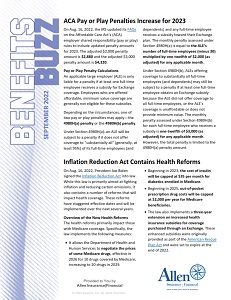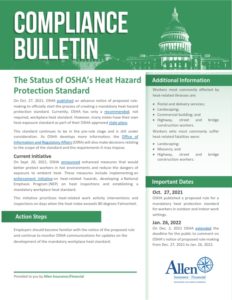

This recognition is achieved only by a select group of agents across the country who sell Safeco Insurance. This is the second consecutive year Coffin has earned this recognition.
“Excellence in underwriting means bringing exceptional customer service together with a deep understanding of the complexities of insurance coverage to create great outcomes for our customers,” said Scott Carlson, manager of the personal insurance division at Allen Insurance and Financial. “Jen and our personal insurance team do that daily by ensuring customers get the insurance coverage that works best for them. This recognition is well deserved and we’re especially proud of the number of consecutive awards Jen has earned.”
The Safeco Award of Excellence recognizes outstanding agents who have developed a solid underwriting relationship with Safeco and whose agencies have qualified for the Safeco Insurance Premier Partner Award, the company’s top recognition program. Fewer than 10 percent of agencies who sell Safeco have agents who receive this award.
Coffin, of Nobleboro, has been with Allen Insurance and Financial since 2004. She holds both the Accredited Customer Service representative (ACSR) and Certified Personal Risk Manager (CPRM) designations.
Allen Insurance and Financial is a multi-year President’s Award and Premier Partner agency, recognition given only to the best independent insurance agencies that sell Safeco. Safeco is a Liberty Mutual Insurance company.







